“A continuous journey of self-discovery and inner peace”. Sofia Sherb on her philosophy of leading a healthy lifestyle
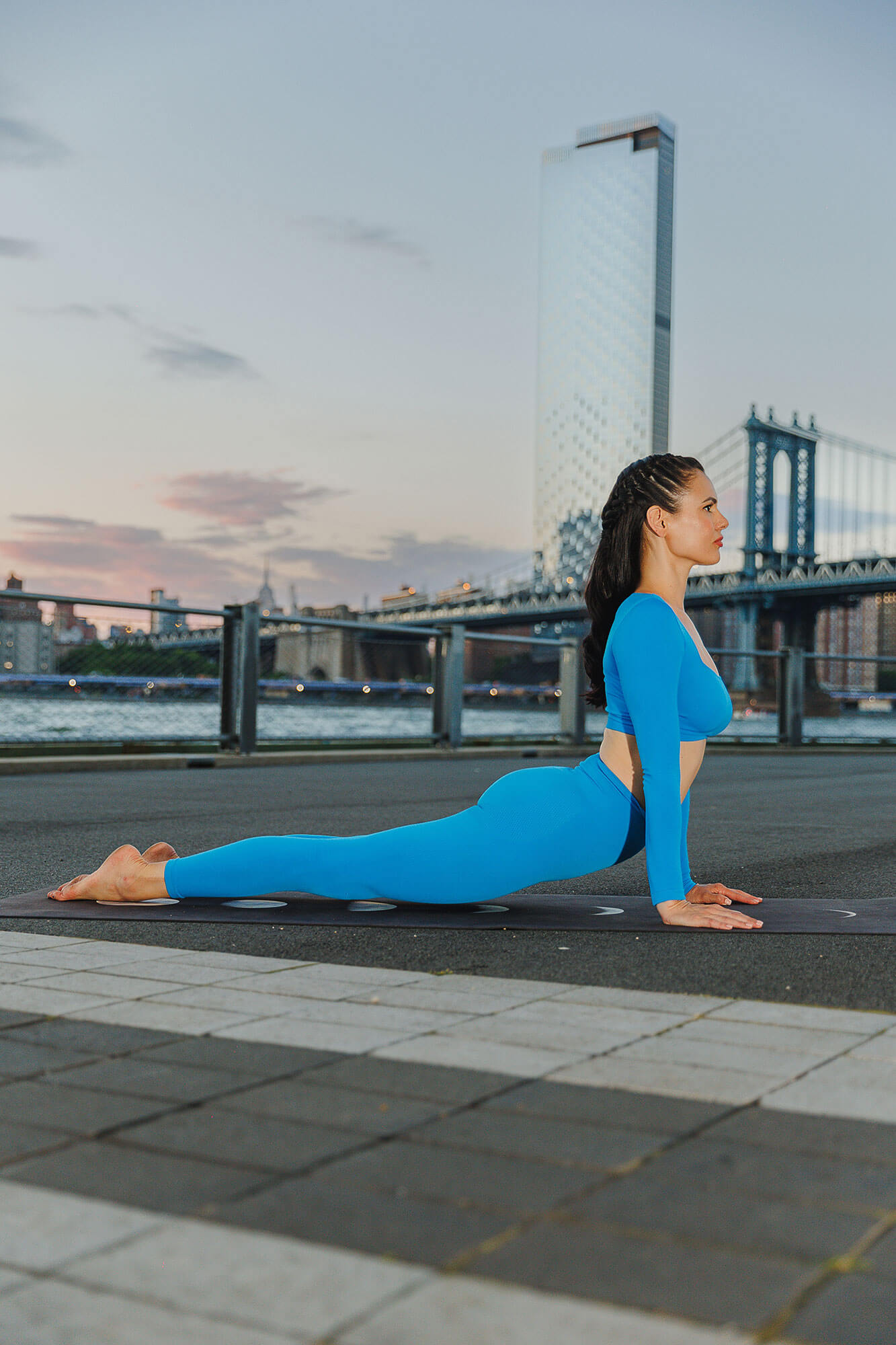
Sofia Sherb
B.K.S. Iyengar, a legendary yoga teacher and philosopher, once said: “A study of asana is not about mastering a posture. It is about using posture to understand and transform yourself.” With yoga becoming a go-to choice for health, well-being, and inner balance, we caught up with Sofia Sherb, who believes she has an innate talent for discovering people’s inner capacity for doing great things through yoga practices.
We asked Sofia about her yoga journey, the advantages of yoga practices for mind and body wellness, and her healthy lifestyle philosophy.
Thank you for joining us today, Sofia. Tell us a little about your journey into yoga. What initially attracted you to the practice?
I was 20 years old when I was first introduced to yoga. That very first experience had a tremendous and transformative impact on me. Perhaps, I felt the physical aspect of moving and breathing with the mental impact of meditating or, maybe, the spiritual blossoming. Whatever the reasons for this impact, I made a conscious decision to devote myself to practicing yoga for my entire life. The more I practiced, the more I realized that yoga was not just an exercise but a comprehensive approach to well-being.
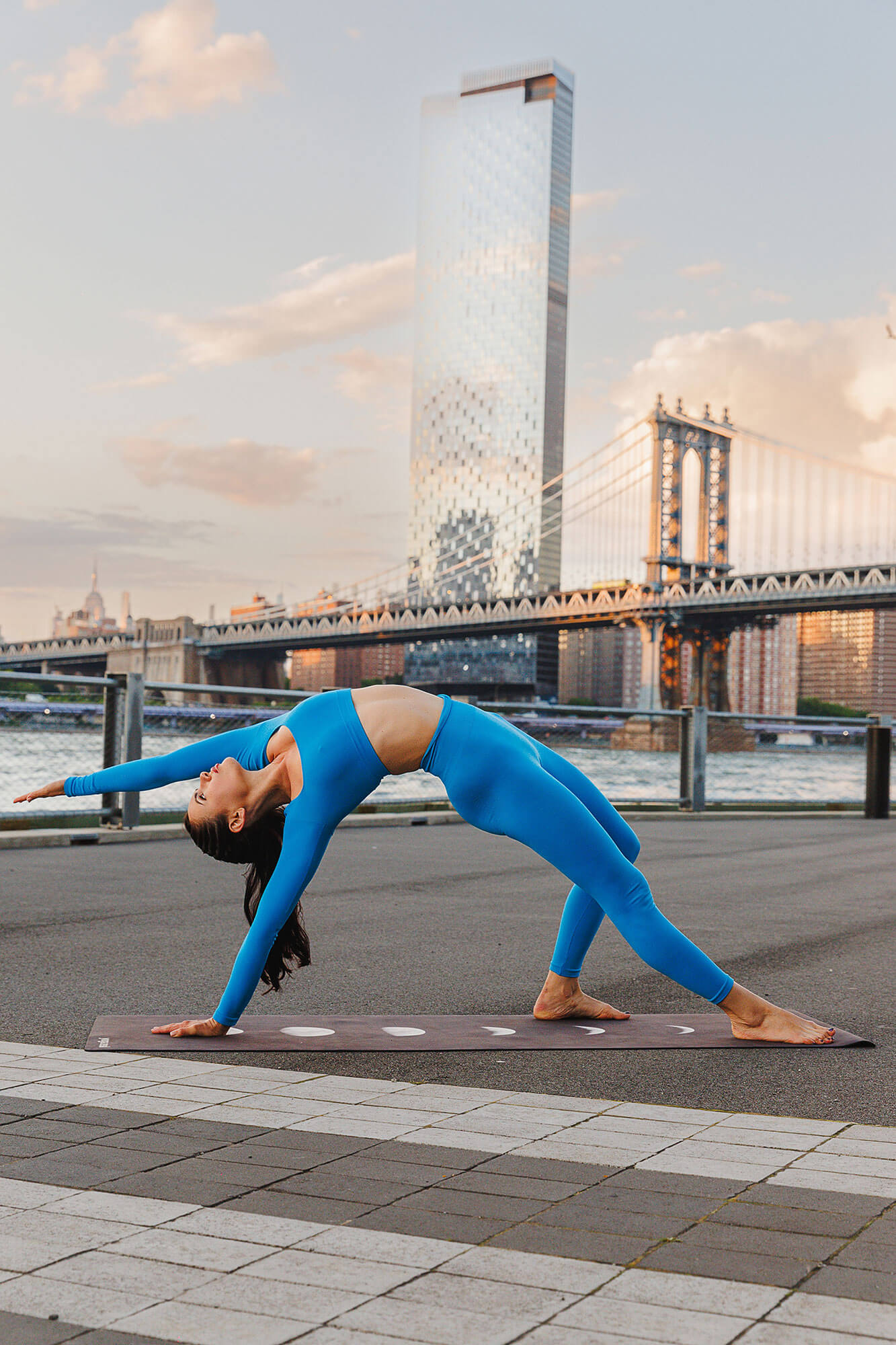
Sofia Sherb
Can you explain, what yoga means personally to you?
For me, yoga is so much more than a physical practice. It’s a way of life that encompasses mental, emotional, and spiritual growth. Yoga has taught me to be present, manage stress, and approach life with greater compassion and patience. It’s a continuous journey of self-discovery and inner peace, and it has profoundly shaped who I am today.
From your experience, what are the key benefits of practicing yoga?
Practicing yoga offers a wide range of benefits that extend beyond the physical realm. Physically, it enhances flexibility, strength, and balance. Yoga can help you to improve posture and alleviate pain. Mentally, yoga promotes relaxation, reduces stress, and enhances focus and clarity. Emotionally, it encourages self-awareness and emotional resilience, helping individuals manage their feelings and cultivate a positive mindset. Spiritually, yoga fosters a deeper connection with oneself and a greater sense of inner peace. Yoga contributes to a more balanced, harmonious, and fulfilling life.
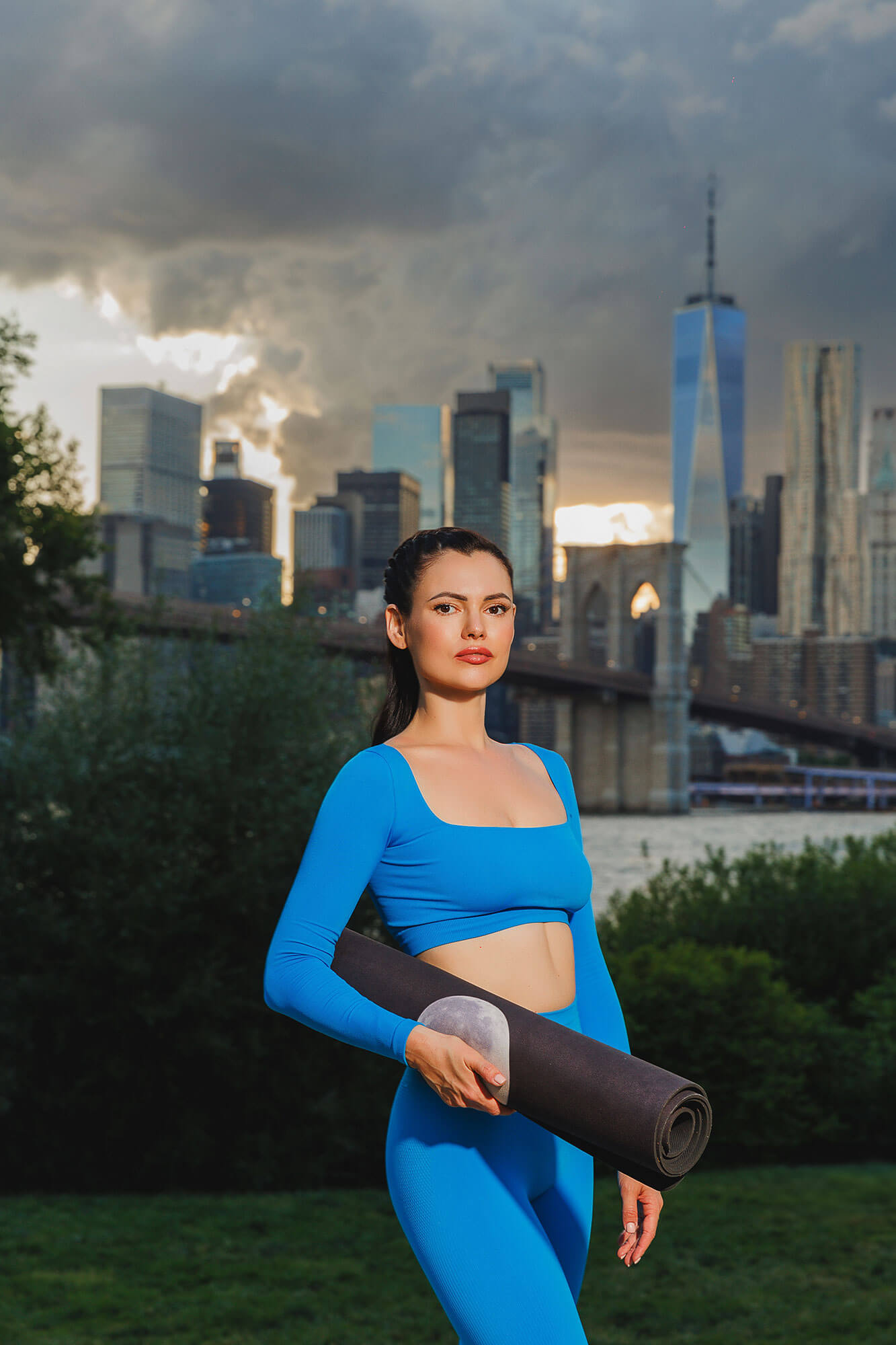
Sofia Sherb
What are some common misconceptions about yoga?
The most popular misconception is that you have to be flexible to practice yoga. Flexibility is a result of regular practice, not a prerequisite. Another misconception is that yoga is only for women. Yoga is beneficial for everyone, regardless of gender. Lastly, some people think yoga is just about physical exercise. However, it also encompasses The Eight Limbs of Yoga, which include moral principles, personal observances, physical postures, breath control, withdrawals of senses, focused concentration, meditation, and the state of blissful oneness.
Could you explain the Eight Limbs of Yoga and how they contribute to a partition’s overall growth and development?
The Eight Limbs of Yoga, as outlined by Patanjali, offer a holistic approach to yoga practice. They start with Yama and Niyama, which are ethical and personal guidelines that help cultivate a balanced and mindful life. Next is Asana, the physical postures, which prepare the body for deeper practices. Pranayama involves breath control, vital for energizing and calming the mind. Pratyahara is about withdrawing from external distractions, enabling better focus. Dharana is the practice of concentration, helping the mind stay anchored. Dhyana is meditation, where one experiences a profound sense of inner peace and insight. Finally, Samadhi represents the ultimate state of unity and enlightenment. These limbs work together to guide practitioners toward a path of personal growth and spiritual fulfillment.

Sofia Sherb
Where did you study?
Before I fully embraced yoga, I graduated with a degree in Economics. But after finishing school, I realized I wanted to dive into a more holistic lifestyle. My journey with yoga led me to countless studios, classes, workshops, and trainings. I completed my yoga teacher training at Pure Yoga in New York in 2017, followed by Urban Tantra Professional Teachers training in 2018. I also studied at the Institute for Integrative Nutrition in New York in 2019 and explored Sound Healing training in 2022. Along the way, I’ve been fortunate to learn various meditation techniques, which I’ve woven into my daily life. These practices have been invaluable in helping me navigate the fast-paced world we live in today.
Do you need any special training to teach yoga, or is it enough to learn the basics yourself?
While some may choose to study yoga on their own, I believe that certification is essential for those who want to teach. A formal program provides structured training in anatomy, philosophy, and teaching methodologies, ensuring that you have the knowledge and skills needed to guide others safely and effectively. Beyond certification, I believe that continuous study is vital. Yoga is an ever-evolving practice, and there’s always something new to learn, whether it’s refining techniques, exploring different styles, or delving deeper into the philosophical aspects. Ongoing education keeps my teaching fresh, deepens my personal practice, and helps me stay connected to the essence of yoga.

Sofia Sherb
What do you find the most rewarding about teaching yoga?
The most rewarding aspect is seeing the positive impact of yoga on my student’s lives. Watching them gain confidence, improve their physical health, and find inner peace is incredibly fulfilling. It’s an honor to be on their journey and to witness their growth and transformation.
What advice would you give to someone just starting their yoga journey?
Begin with an open mind and a sense of curiosity. Start slow and listen to your body. Yoga is a personal journey; there is no competition or comparison. Find a good teacher who resonates with you, and explore different styles to see what suits you best.
Most importantly, be consistent and patient. Embrace yoga with an open heart, and it can transform your life in profound ways.
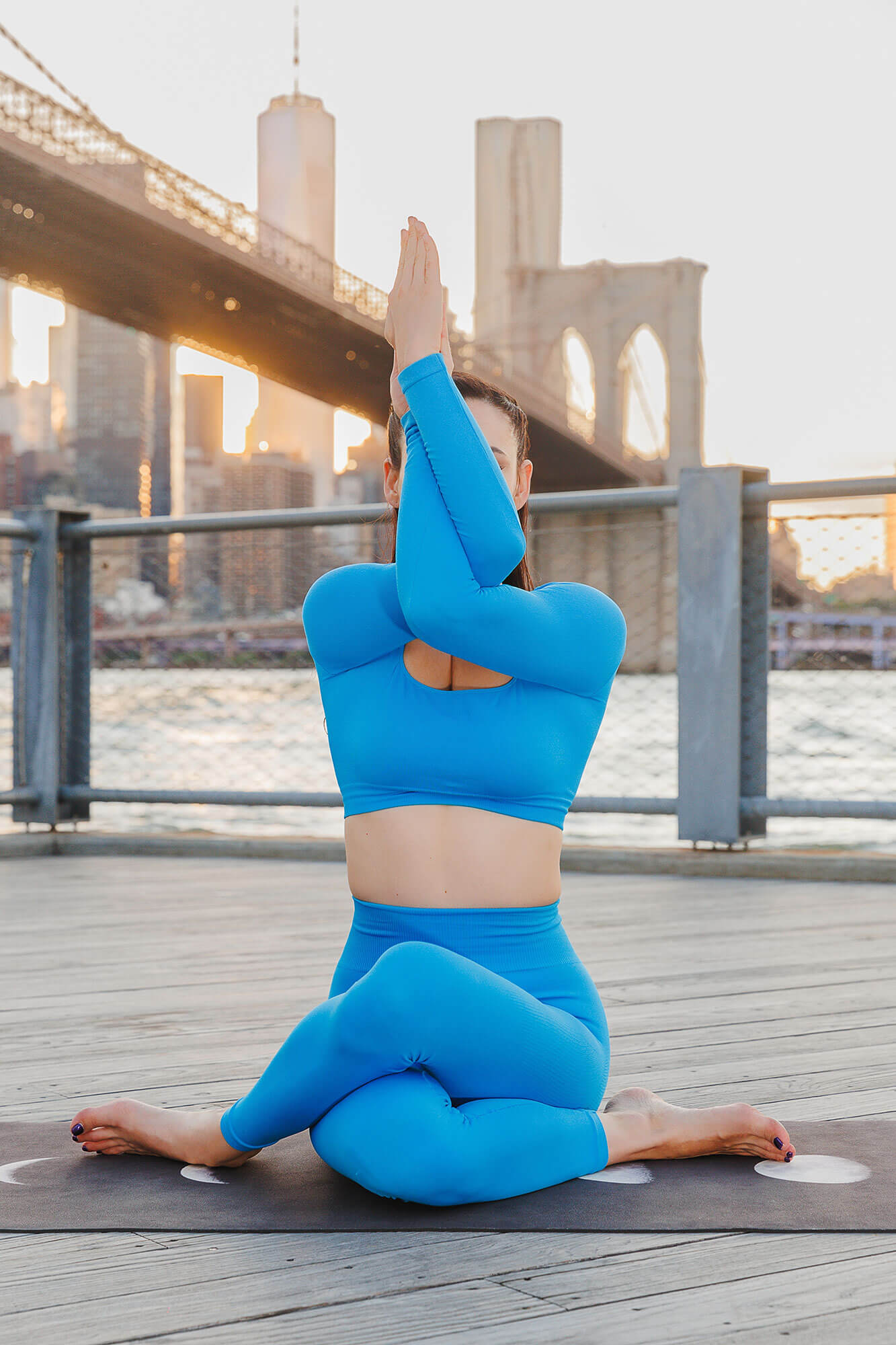
Sofia Sherb
Which resources or books do you recommend for someone looking to deepen their understanding of yoga?
For those looking to deepen their understanding, I recommend “The Yoga Sutras of Patanjali”, which is essential for exploring yoga’s philosophical foundation. “Light on Yoga” by B.K.S. Iyengar is a classic resource for understanding postures and their benefits. “The Heart of Yoga” by T.K.V. Desikachar offers a comprehensive look at philosophy and practice.
Exploring various online courses or attending workshops can also provide valuable insights and practical experience.
Yoga has now become a popular practice in the lifestyle of modern young people. Do you think this trend for yoga is here to stay? What else from the wellbeing direction would you recommend restoring inner balance and harmony?
Yes, I believe yoga will continue to be a significant trend for a long time. Yoga is an ancient practice with roots deeply embedded in tradition, offering profound benefits for the mind, body, and spirit. Its timeless appeal lies in its adaptability and its ability to address contemporary needs such as stress relief, mindfulness, and physical wellness. As people increasingly seek holistic approaches to health and well-being, yoga’s rich heritage and versatility ensure that it remains a relevant and cherished practice. Its integration of breath, movement, and meditation provides a sanctuary of balance in our fast-paced world, ensuring its enduring presence in the wellness landscape.
Thank you so much for sharing your insights and experiences with us.
Thank you. It’s been a pleasure to share my journey. Yoga is so much more than poses or Asana. It is rather a tool to help us awaken and transform our lives. It is an ongoing process, and yoga practice leads us to access our intuition and offers unique insights into self-awareness exploration, and ultimately transformation. Namaste!
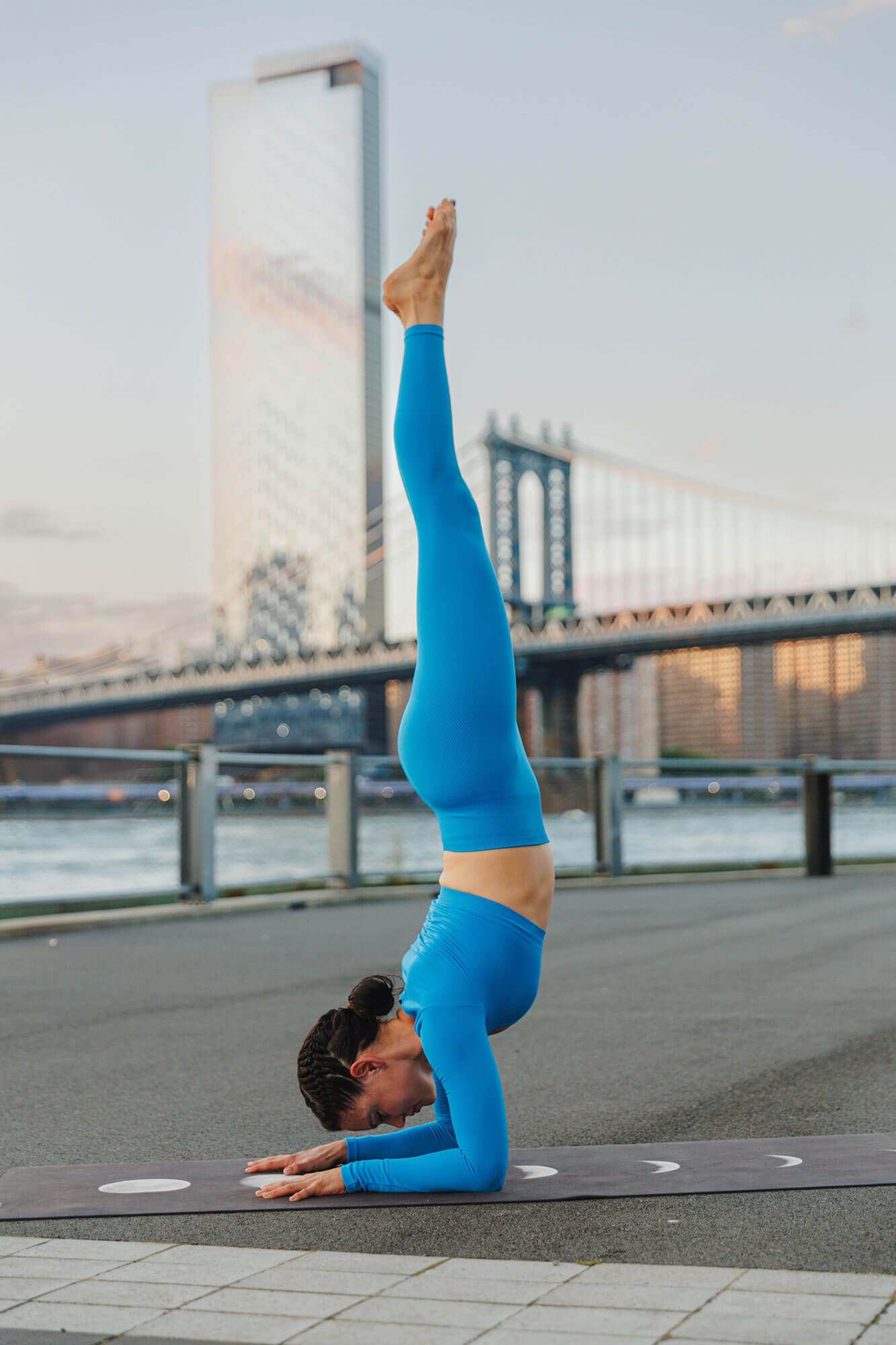
Sofia Sherb

